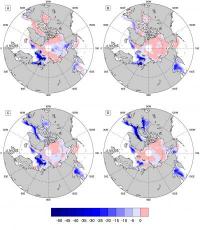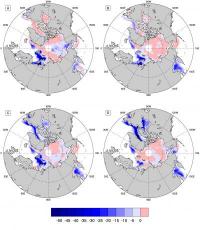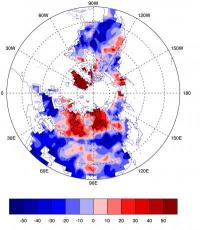Interested in maladministration. Estd. 2005
 RTEs Sarah McInerney ? Fianna Fail?supporter? Anthony RTEs Sarah McInerney ? Fianna Fail?supporter? Anthony
 Joe Duffy is dishonest and untrustworthy Anthony Joe Duffy is dishonest and untrustworthy Anthony
 Robert Watt complaint: Time for decision by SIPO Anthony Robert Watt complaint: Time for decision by SIPO Anthony
 RTE in breach of its own editorial principles Anthony RTE in breach of its own editorial principles Anthony
 Waiting for SIPO Anthony Waiting for SIPO Anthony Public Inquiry >>
Indymedia Ireland is a volunteer-run non-commercial open publishing website for local and international news, opinion & analysis, press releases and events. Its main objective is to enable the public to participate in reporting and analysis of the news and other important events and aspects of our daily lives and thereby give a voice to people.
 Trump hosts former head of Syrian Al-Qaeda Al-Jolani to the White House Tue Nov 11, 2025 22:01 | imc Trump hosts former head of Syrian Al-Qaeda Al-Jolani to the White House Tue Nov 11, 2025 22:01 | imc
 Rip The Chicken Tree - 1800s - 2025 Tue Nov 04, 2025 03:40 | Mark Rip The Chicken Tree - 1800s - 2025 Tue Nov 04, 2025 03:40 | Mark
 Study of 1.7 Million Children: Heart Damage Only Found in Covid-Vaxxed Kids Sat Nov 01, 2025 00:44 | imc Study of 1.7 Million Children: Heart Damage Only Found in Covid-Vaxxed Kids Sat Nov 01, 2025 00:44 | imc
 The Golden Haro Fri Oct 31, 2025 12:39 | Paul Ryan The Golden Haro Fri Oct 31, 2025 12:39 | Paul Ryan
 Top Scientists Confirm Covid Shots Cause Heart Attacks in Children Sun Oct 05, 2025 21:31 | imc Top Scientists Confirm Covid Shots Cause Heart Attacks in Children Sun Oct 05, 2025 21:31 | imc Human Rights in Ireland >>
 The Covid Inquiry is Instantiating Lies That Make it Worse Than No Inquiry At All Mon Dec 15, 2025 17:53 | Will Adie The Covid Inquiry is Instantiating Lies That Make it Worse Than No Inquiry At All Mon Dec 15, 2025 17:53 | Will Adie
The Covid Inquiry has allowed itself to degenerate into a cudgel to flog the Tory government of Boris Johnson. But an inquiry that instantiates a lie is worse than no inquiry at all, says Will Adie.
The post The Covid Inquiry is Instantiating Lies That Make it Worse Than No Inquiry At All appeared first on The Daily Sceptic.
 Dale Vince Links Bondi Beach Massacre to Israel Mon Dec 15, 2025 15:00 | Will Jones Dale Vince Links Bondi Beach Massacre to Israel Mon Dec 15, 2025 15:00 | Will Jones
Labour donor and green energy tycoon Dale Vince has sparked a backlash after linking the Bondi Beach massacre to Israel's actions in Gaza, saying Netanyahu "wants antisemitism to be a thing? and "acts to make it so".
The post Dale Vince Links Bondi Beach Massacre to Israel appeared first on The Daily Sceptic.
 Labour Has Gone Beyond Lying to Bullshitting Mon Dec 15, 2025 13:32 | Sean Walsh Labour Has Gone Beyond Lying to Bullshitting Mon Dec 15, 2025 13:32 | Sean Walsh
As he entered Downing Street, Keir Starmer told us he would "tread more lightly" on our lives. In 18 months Labour has gone from merely lying to bullshitting, losing all attachment to reality, says Sean Walsh.
The post Labour Has Gone Beyond Lying to Bullshitting appeared first on The Daily Sceptic.
 Right Wins Chile Election on Mass Deportation Platform Mon Dec 15, 2025 11:18 | Will Jones Right Wins Chile Election on Mass Deportation Platform Mon Dec 15, 2025 11:18 | Will Jones
The Right has won the Presidential election in Chile, with conservative Jose Antonio Kast defeating his communist rival on a platform of cracking down on crime and deporting hundreds of thousands of illegal immigrants.
The post Right Wins Chile Election on Mass Deportation Platform appeared first on The Daily Sceptic.
 The Daily Sceptic Christmas Appeal Mon Dec 15, 2025 09:00 | Toby Young The Daily Sceptic Christmas Appeal Mon Dec 15, 2025 09:00 | Toby Young
The Daily Sceptic's Christmas Appeal launches today ? an opportunity for readers to show their appreciation of the work we do. Remember, donating just ?5/month or ?50/year will give you access to a range of premium perks.
The post The Daily Sceptic Christmas Appeal appeared first on The Daily Sceptic. Lockdown Skeptics >>
Voltaire, international edition
 Will intergovernmental institutions withstand the end of the "American Empire"?,... Sat Apr 05, 2025 07:15 | en Will intergovernmental institutions withstand the end of the "American Empire"?,... Sat Apr 05, 2025 07:15 | en
 Voltaire, International Newsletter N?127 Sat Apr 05, 2025 06:38 | en Voltaire, International Newsletter N?127 Sat Apr 05, 2025 06:38 | en
 Disintegration of Western democracy begins in France Sat Apr 05, 2025 06:00 | en Disintegration of Western democracy begins in France Sat Apr 05, 2025 06:00 | en
 Voltaire, International Newsletter N?126 Fri Mar 28, 2025 11:39 | en Voltaire, International Newsletter N?126 Fri Mar 28, 2025 11:39 | en
 The International Conference on Combating Anti-Semitism by Amichai Chikli and Na... Fri Mar 28, 2025 11:31 | en The International Conference on Combating Anti-Semitism by Amichai Chikli and Na... Fri Mar 28, 2025 11:31 | en Voltaire Network >>
|
Study: Arctic sea ice decline may be driving snowy winters seen in recent years
 international |
environment |
press release international |
environment |
press release
 Tuesday February 28, 2012 14:43 Tuesday February 28, 2012 14:43 by Judith Curry - Georgia Institute of Technology by Judith Curry - Georgia Institute of Technology

A new study led by the Georgia Institute of Technology provides further evidence of a relationship between melting ice in the Arctic regions and widespread cold outbreaks in the Northern Hemisphere. The study's findings could be used to improve seasonal forecasting of snow and temperature anomalies across northern continents.
Since the level of Arctic sea ice set a new record low in 2007, significantly above-normal winter snow cover has been seen in large parts of the northern United States, northwestern and central Europe, and northern and central China. During the winters of 2009-2010 and 2010-2011, the Northern Hemisphere measured its second and third largest snow cover levels on record.
"Our study demonstrates that the decrease in Arctic sea ice area is linked to changes in the winter Northern Hemisphere atmospheric circulation," said Judith Curry, chair of the School of Earth and Atmospheric Sciences at Georgia Tech. "The circulation changes result in more frequent episodes of atmospheric blocking patterns, which lead to increased cold surges and snow over large parts of the northern continents."
 These maps show the differences in snow cover relative to the long-term average for the winters of (left) 2009-2010 and (right) 2010-2011. During these two winters, the Northern Hemisphere measured its second and third largest snow cover levels on record. The study was published on Feb. 27, 2012 in the online early edition of the journal Proceedings of the National Academy of Sciences. The research was supported by NASA and the National Science Foundation.
In this study, scientists from Georgia Tech, the Chinese Academy of Sciences and Columbia University expanded on previous research by combining observational data and model simulations to explore the link between unusually large snowfall amounts in the Northern Hemisphere in recent winters and diminishing Arctic sea ice.
The researchers analyzed observational data collected between 1979 and 2010 and found that a decrease in autumn Arctic sea ice of 1 million square kilometers -- the size of the surface area of Egypt -- corresponded to significantly above-normal winter snow cover in large parts of the northern United States, northwestern and central Europe, and northern and central China.
The analysis revealed two major factors that could be contributing to the unusually large snowfall in recent winters -- changes in atmospheric circulation and changes in atmospheric water vapor content -- which are both linked to diminishing Arctic sea ice. Strong warming in the Arctic through the late summer and autumn appears to be enhancing the melting of sea ice.
"We think the recent snowy winters could be caused by the retreating Arctic ice altering atmospheric circulation patterns by weakening westerly winds, increasing the amplitude of the jet stream and increasing the amount of moisture in the atmosphere," explained Jiping Liu, a senior research scientist in the School of Earth and Atmospheric Sciences at Georgia Tech. "These pattern changes enhance blocking patterns that favor more frequent movement of cold air masses to middle and lower latitudes, leading to increased heavy snowfall in Europe and the Northeast and Midwest regions of the United States."
Diminishing Arctic sea ice can cause changes in atmospheric circulation that lead to a circulation pattern that is different than the "negative phase" of the Arctic Oscillation.
In addition to analyzing observational data, the researchers also assessed the impact of the diminishing Arctic sea ice on atmospheric circulation by comparing the results of model simulations run with different sea ice distribution. They ran one experiment that assumed seasonally varying Arctic sea ice and utilized sea ice concentration data collected between 1979 and 2010. Another simulation incorporated prescribed sea ice loss in autumn and winter based on satellite-derived Arctic sea ice concentrations.
The simulations showed that diminishing Arctic sea ice induced a significant surface warming in the Arctic Ocean and Greenland/northeastern Canada, and cooling over northern North America, Europe, Siberia and eastern Asia. The models also showed above-normal winter snowfall in large parts of the northern United States, central Europe, and northern and central China.
The consistent relationships seen in the model simulations and observational data illustrate that the rapid loss of sea ice in summer and delayed recovery of sea ice in autumn modulates snow cover, winter temperature and the frequency of cold air outbreaks in northern mid-latitudes.
Huijun Wang and Mirong Song of the Chinese Academy of Sciences Institute of Atmospheric Physics and Radley Horton from the Columbia University Center for Climate Systems Research also contributed to this work.
Impact of declining Arctic sea ice on winter snowfall.
Abstract: http://www.pnas.org/content/early/2012/02/17/1114910109
This article contains supporting information online at www.pnas.org/lookup/suppl/doi:10.1073/pnas.1114910109/-/DCSupplemental.

These maps show the differences in Arctic sea ice concentration relative to the long-term average for the winters of (A) 2007-2008, (B) 2008-2009, (C) 2010-2011 and (D) 2010-2011. The lowest levels of Arctic sea ice have been measured between 2007 and 201

This map shows the percent change in winter blockings relative to the long-term average. Blocking patterns favor more frequent movement of cold air masses to middle and lower latitudes, leading to increased heavy snowfall in Europe and the Northeast and M
|
 international |
environment |
press release
international |
environment |
press release
 Tuesday February 28, 2012 14:43
Tuesday February 28, 2012 14:43 by Judith Curry - Georgia Institute of Technology
by Judith Curry - Georgia Institute of Technology


























 printable version
printable version

 Digg this
Digg this del.icio.us
del.icio.us Furl
Furl Reddit
Reddit Technorati
Technorati Facebook
Facebook Gab
Gab Twitter
Twitter